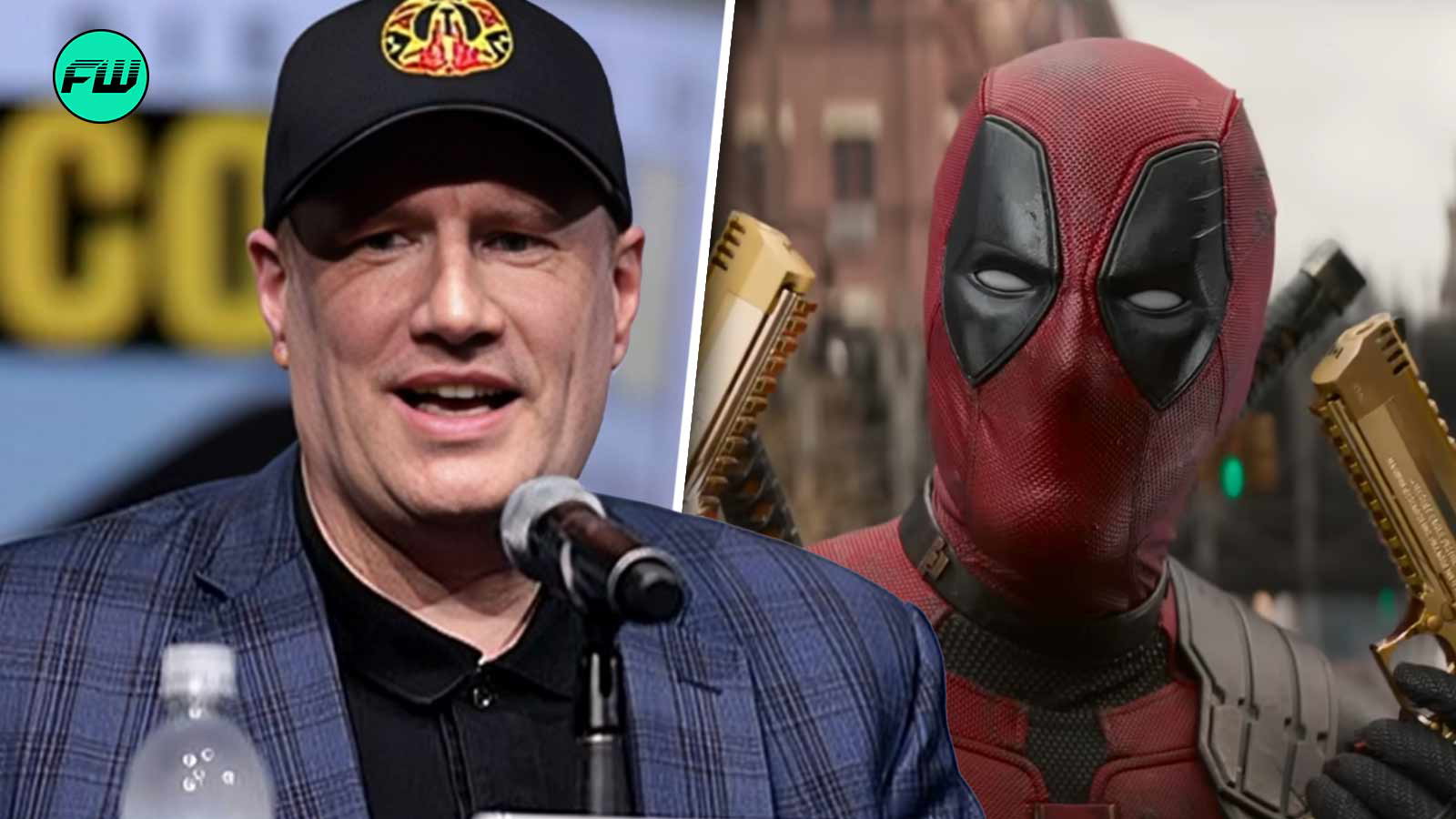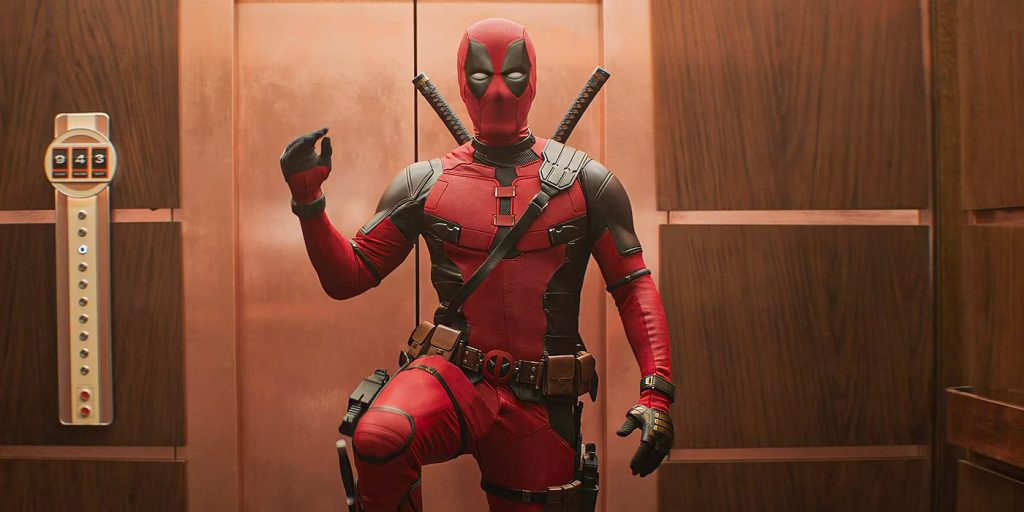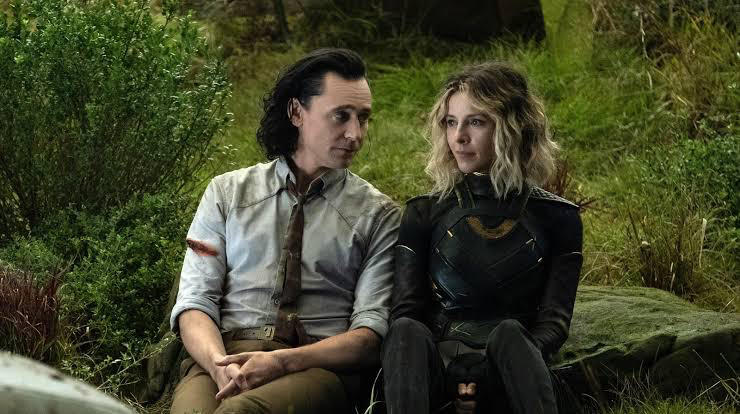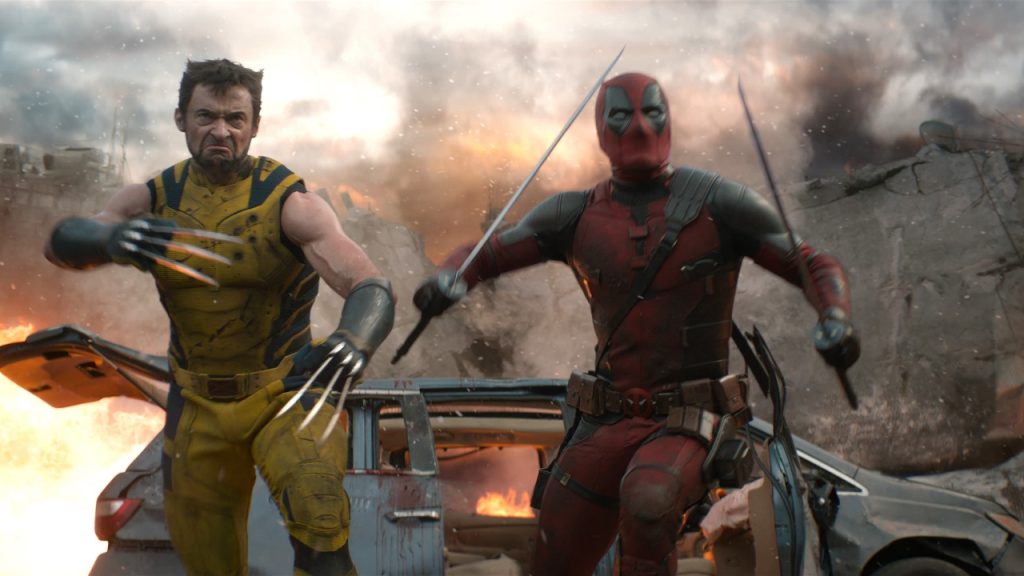Ryan Reynolds has always been known for his sharp wit and candid remarks, both on-screen and off. However, his portrayal of Deadpool in the Marvel Cinematic Universe (MCU) takes his irreverence to another level. Through his portrayal of the “Merc with a Mouth,” Reynolds has repeatedly broken the fourth wall, offering hilarious, brutally honest critiques that resonate with fans around the world. In his latest appearance alongside Hugh Jackman in Deadpool & Wolverine, Reynolds doesn’t shy away from critiquing the MCU’s current trajectory.

He specifically targets the Multiverse Saga overseen by Marvel Studios president Kevin Feige, describing it as “miss after miss after miss.” This critique isn’t just a throwaway joke but a reflection of growing discontent among fans who have found the Multiverse Saga to be convoluted and lacking the impact of the franchise’s earlier, more grounded storylines. So, what exactly did Reynolds say, and why has his comment struck such a chord with fans?
Deadpool’s iconic entrance into the MCU was always going to be a game-changer. Known for his meta-commentary and breaking the fourth wall, Reynolds’ Deadpool is uniquely positioned to provide commentary on the very universe he is now a part of. In Deadpool & Wolverine, the character doesn’t hold back, taking direct shots at the direction Marvel has taken post-Avengers: Endgame.
In one of the movie’s standout moments, Deadpool bluntly asks his fellow variants, “Can we just be done? With the whole multiverse thing? It’s not great. It’s just been miss after miss after miss. The Wizard of Oz did the multiverse first and they did it best! The gays knew it! But we didn’t listen. Let’s just take the ‘L’ and move on.” This line, delivered in classic Deadpool fashion, is more than just a humorous quip. It encapsulates a growing sentiment among fans and critics that the MCU’s Multiverse Saga has not lived up to expectations.
To understand the impact of Reynolds’ words, it’s important to look back at how the MCU arrived at this point. After the unprecedented success of the Infinity Saga, which culminated in the epic showdown of Avengers: Endgame, Marvel Studios decided to pivot towards the multiverse concept. This new direction was first hinted at in Doctor Strange and fully embraced in the Disney+ series Loki, where the death of He Who Remains (a variant of Kang the Conqueror) set off a chain reaction that opened up the multiverse. While this was a bold move, aiming to expand the storytelling possibilities within the MCU, the execution has been met with mixed reactions.

The Multiverse Saga was meant to introduce a plethora of new characters, stories, and alternate realities, creating a fresh and expansive narrative landscape. However, instead of the streamlined, tightly woven narratives that characterized the Infinity Saga, many fans and critics have found the multiverse concept to be overly convoluted, confusing, and lacking emotional resonance.
Projects like Doctor Strange in the Multiverse of Madness and Ant-Man and The Wasp: Quantumania have struggled to achieve the same level of impact as their predecessors. The narrative has become so complex that it often feels like the MCU is losing its original charm and accessibility, and that’s precisely what Deadpool, in his cheeky yet poignant way, pointed out.
Reynolds’ direct call-out to Kevin Feige, the mastermind behind the MCU’s successes and now its perceived stumbles, serves as both a critique and a wake-up call. Feige has been hailed as a genius for his work in constructing the MCU’s first three phases, but the multiverse storyline has proven to be a different beast altogether.
The complaint that “it’s just been miss after miss after miss” reflects a growing fatigue with a plot device that, while initially exciting, has started to feel overused and underwhelming. Deadpool’s remark about “The Wizard of Oz did the multiverse first and they did it best” is a tongue-in-cheek reminder that sometimes less is more and that classic storytelling should not be overcomplicated by unnecessary gimmicks.
The sentiment expressed by Reynolds through Deadpool has resonated deeply with fans who have been vocal about their disappointment with Marvel’s recent trajectory. Many have taken to social media platforms to express their frustrations, calling for Marvel Studios to pivot away from the multiverse theme and return to more grounded, character-driven stories that made the franchise a global phenomenon in the first place. There is a sense that Marvel’s ambitious expansion of its universe has led to a dilution of what made it special: well-crafted characters, compelling villains, and coherent story arcs that build up to emotionally charged payoffs.

Despite the criticisms, it’s important to note that Deadpool & Wolverine has not only succeeded in offering a meta-commentary on the state of the MCU but has also been a massive hit at the box office. The film has become the highest-grossing R-rated movie of all time, raking in $1.21 billion worldwide. The movie’s success can be attributed to its unique blend of humor, action, and nostalgia, as well as its ability to break the fourth wall and provide a self-aware critique of the very universe it inhabits. Unlike other MCU films that have struggled to find their footing in the post-Endgame era, Deadpool & Wolverine has managed to captivate audiences by doing what the MCU has often done best: keeping it fun and unpredictable.
Part of what makes Deadpool’s critique so effective is its timing. Coming after several films and TV shows that have struggled to resonate with audiences, the comment feels like an acknowledgment of the frustration many have felt. It’s as if Deadpool is speaking directly for the fans who have stuck with the MCU through thick and thin, only to find themselves increasingly disillusioned with its recent offerings. The humor and the raw honesty in his statement are what make it land so well; it’s not just another joke, but a reflection of a sentiment that has been brewing among the fanbase.
Moreover, this isn’t the first time Reynolds has used his character to voice criticisms or commentary on the state of superhero cinema. In the previous Deadpool films, he has taken digs at the superhero genre as a whole, poking fun at both the X-Men franchise and the DCEU. His latest comment about Kevin Feige and the multiverse saga, however, feels more pointed and timely. It’s almost as if Reynolds, through Deadpool, is urging Marvel to “take the L” and move on to new pastures—a bold suggestion for a franchise that has been synonymous with success.
While some may argue that the Multiverse Saga still holds potential, especially with upcoming titles like Avengers: Secret Wars, the overwhelming message from Reynolds’ critique is that Marvel needs to reassess its approach. There is still hope that the MCU can learn from these perceived “misses” and adapt accordingly. The success of Deadpool & Wolverine demonstrates that audiences are still hungry for superhero content, but they want it to be meaningful, coherent, and most importantly, entertaining without feeling overburdened by complex plot devices.
The film’s success also shows that fans appreciate when the MCU doesn’t take itself too seriously. By allowing Deadpool to call out the franchise’s shortcomings, Marvel Studios is demonstrating a level of self-awareness that could serve it well moving forward. It’s a reminder that sometimes, the best way to address criticism is to embrace it, have a laugh, and then strive to improve.

Moving forward, it will be interesting to see how Marvel Studios responds to these critiques—both from fans and from within its own cinematic universe. Will they continue to double down on the multiverse, or will they pivot back to the kind of storytelling that made the Infinity Saga so beloved? Only time will tell, but one thing is clear: Ryan Reynolds and his alter ego Deadpool have, once again, captured the zeitgeist of Marvel fandom, proving that sometimes, a little bit of honesty and humor can go a long way in bridging the gap between a franchise and its audience.
Ultimately, Deadpool & Wolverine serves as both a hilarious romp and a much-needed critique of the MCU’s current direction. By calling out Kevin Feige and the multiverse saga’s shortcomings, Ryan Reynolds as Deadpool is not just making fans laugh but also voicing their concerns. It’s a bold move that underscores why Deadpool remains one of the most unique and refreshing characters in superhero cinema. As Marvel looks to the future, perhaps it will take a page out of Deadpool’s book—embracing what worked in the past while being unafraid to admit where it might have gone wrong.
News
🚨¡IMPACTANTE REVELACIÓN! Alejo y Luisa Eliminados en el Capítulo 107 del Desafío 2024
El Desafío 2024 continúa sorprendiendo a sus seguidores con giros inesperados y eliminaciones que dejan a todos boquiabiertos. En el episodio más reciente, el capítulo 107, la noticia de la eliminación de Alejo y Luisa ha causado un gran revuelo….
📢 SHOCKING REVELATION: Taylor Swift’s Heartbreak Over Travis Kelce’s Daughter
In an unexpected twist of events, Taylor Swift was recently spotted in a teary-eyed state, grappling with the emotional weight of discovering that NFL star Travis Kelce has a two-year-old daughter. This revelation has sent shockwaves through the media and…
🎧ྀི Taylor Swift Unveils Her Game-Changing Strategy: What’s in the Playbook for the Bengals Game?
In an unexpected twist that has captured the attention of fans and sports enthusiasts alike, pop icon Taylor Swift is making waves not just in the music industry but also in the realm of professional football. Known for her chart-topping…
🕺 Brittany Mahomes: Unapologetic and Unfiltered in the Face of Controversy
In the world of social media and celebrity culture, few figures manage to stir as much debate and discussion as Brittany Mahomes. As the wife of NFL star Patrick Mahomes, Brittany has found herself under the spotlight, not just for…
👨🏿❤️💋👨🏽 A Night to Remember: Patrick Mahomes and Brittany’s Date Amidst NFL Drama
In the vibrant heart of Kansas City, where the air is thick with the excitement of football season, a remarkable evening unfolded that caught the attention of fans and media alike. Patrick Mahomes, the star quarterback of the Kansas City…
👖 The Fashion Playbook: Patrick Mahomes’ Style Advice and Its Impact on NFL Culture
Style often plays as significant a role as skill. Athletes not only compete on the field but also make statements off it, influencing fans and the culture surrounding their sport. Recently, a playful yet insightful moment unfolded in the NFL…
End of content
No more pages to load











